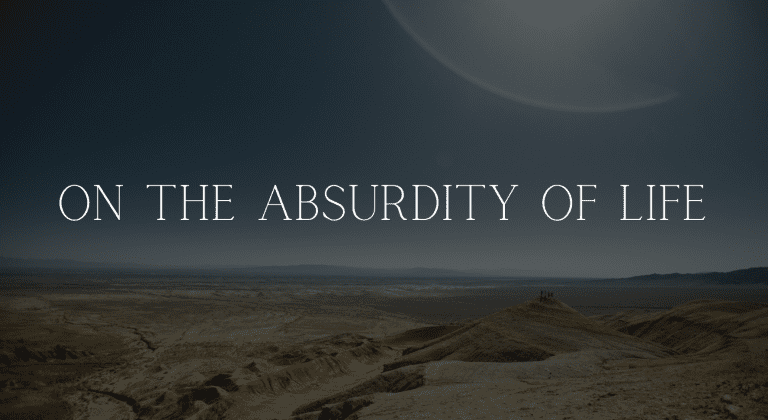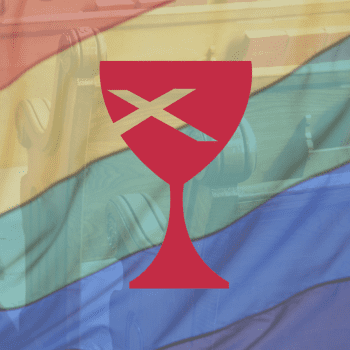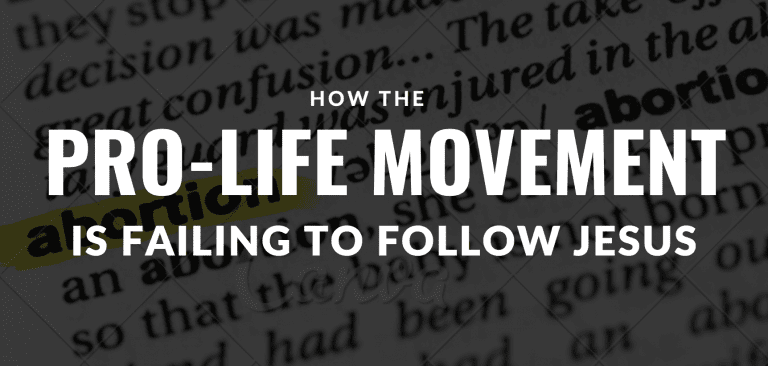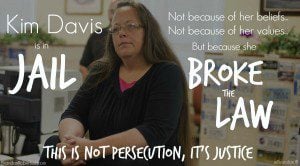For the second installment in my Meet the Revangelicals series (the first interview is available here), I had the honor of 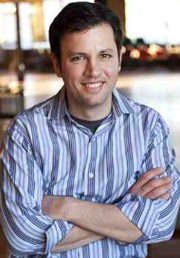 interviewing one of my new friends and a man that I admire greatly, Pastor Daniel Hill of River City Church in Chicago and author of a fantastic new book- “10:10- Life to the Fullest” (Baker, 2014). Daniel has a passionate heart for his church where he and his team have been doing innovative multi-cultural ministry and is committed to helping Christians walk in the abundant life that God has made available to us. So I was super excited to get the chance to ask Daniel some questions about his life, book, ministry, and the Church. I hope you enjoy our conversation!
interviewing one of my new friends and a man that I admire greatly, Pastor Daniel Hill of River City Church in Chicago and author of a fantastic new book- “10:10- Life to the Fullest” (Baker, 2014). Daniel has a passionate heart for his church where he and his team have been doing innovative multi-cultural ministry and is committed to helping Christians walk in the abundant life that God has made available to us. So I was super excited to get the chance to ask Daniel some questions about his life, book, ministry, and the Church. I hope you enjoy our conversation!
1. To begin, can you give us a summary of your story? Who is Daniel Hill and how did you get to where you are today?
I was born and raised in Chicago, so that’s been a huge part of my story. I’m also a PK (pastor’s kid), so that had a big influence on me as well. My father was very eclectic in the way he engaged with church, and, though it was confusing at times, it was also really helpful. We shuttled back and forth between everything from fundamentalist house churches to Pentecostal mega-churches, and that taught me to appreciate (and critique) a variety of Christian traditions.
I never expected to become a pastor. I was actually drawn to the business world, and I majored in business when I attended Purdue. After graduation I joined an Internet startup firm in the northwest suburbs of Chicago. By then I had stopped attending church, but I soon discovered that I lived only blocks from the well-known Willow Creek Community Church. I had little interest in Willow as a church, but it was attractive as a place to meet new friends. I had no idea that God would use Willow Creek not only to galvanize my faith, but also as the agent through which I discovered the call to become a pastor. I will always be grateful for the role that Willow Creek played in that part of my life
I ended up working at Willow during my 20’s, and I learned a lot. It was also during that time that God began to plant an irrepressible hunger within me to expand my vision of Jesus, the Gospel, and the Kingdom of God. I wasn’t sure where to go to nurture this desire, and I found myself being continually drawn to the historic Black church in Chicago. It was during that era that I began to see how central justice was to both the character of God as well as to holistic discipleship.
In January 2003 I left Willow Creek to start River City Community Church in the Humboldt Park neighborhood of Chicago. It is here that I entered into a whole new era of understanding community, faith, church, and mission.
2. You recently released a book called 10:10. What’s the message behind this book?
One of the persistent realities that unsettles me about Christianity is the way we all tend to drift to such imbalance. This is 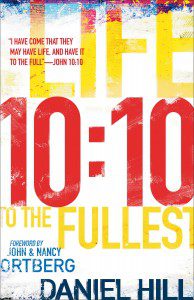 true not just as individuals, but as large groups of people. In one circle we see great worship, but then it feels very Isaiah 58 like, and has no corresponding emphasis on justice. In other circles we see an authentic Biblical call to action, yet that same action lacks theological depth and prayer. And then, in other circles, we see a huge emphasis on memorizing doctrine, only to see that “head knowledge” fail to break the cycle of legalism and self-righteousness.
true not just as individuals, but as large groups of people. In one circle we see great worship, but then it feels very Isaiah 58 like, and has no corresponding emphasis on justice. In other circles we see an authentic Biblical call to action, yet that same action lacks theological depth and prayer. And then, in other circles, we see a huge emphasis on memorizing doctrine, only to see that “head knowledge” fail to break the cycle of legalism and self-righteousness.
So the message of 10:10 is a call to the vision of Jesus… a vision of fullness in the way we experience life, faith, and ultimately, God. The launching point is John 10:10, which is such a beloved verse by many Christians. Yet many of the same people who claim this as a life verse admit that they rarely experience it, and, even worse, have no clear idea how to effectively move towards this vision. That is what I try to tackle in this book. It is a combination of intense theological examination of the idea of “fullness of life” alongside a consolidation of the collective wisdom I’ve learned from many valuable mentors throughout the years.
3. So many Christians find themselves in that place where our faith seems dry, empty, or non-existent. To be honest, the conventional Christian wisdom of “lean on Jesus” doesn’t tend to work. How do we move into a place of robust and fulfilling faith?
While there is no one-size-fits-all answer, I would suggest that there is a common root: when it comes to how we think of faith, we too often center ourselves and de-center Jesus.
I quote Dr. Klyne Snodgrass in the book, and I think he has found an interesting way to describe this dynamic. Snodgrass is a New Testament scholar and has published a lot of academic work, in particular on the Apostle Paul. He thinks that the way Paul teaches faith is in direct contrast to the way we tend to teach it. He puts it in the form of a question: “Which is a more familiar way to describe faith in Christian circles: Christ being ‘in us’, or us being ‘in Christ’?”
Most of us have heard the first – we are trained to invite Jesus Christ to come into our lives. I might add here that it’s for good reason that we invite Christ into our lives; we are aware that we need Jesus. We need Jesus to forgive our sins, calm our fears, reveal our life plan, heal our broken relationships, bless us with inner peace, and guide us through the craziness of everyday life.
Those are all things that we legitimately need from Jesus, and those are things we should absolutely look to the provision of Christ for. However, if we are not careful, we turn the entire faith enterprise into how and what Jesus Christ does for me. This is rarely a conscious decision, and I don’t think most of us do it for selfish reasons. But it doesn’t change the fact that imbalance arises quickly. Jesus comes into my life; my desires and needs become the center of the faith experience instead of the other away around.
This is where Snodgrass’ research is really helpful. He is quick to say that there is nothing wrong with praying that Jesus would come into your heart and into your life. There is Biblical precedent for this, as you can find Paul talking about faith like this five or six times in the New Testament. But get this. Paul says it in the opposite order – “in Christ” – 164 times! In other words, Paul thought of faith not primarily as a way Christ comes into our life, but as the means by which we enter into his.
This has far-reaching implications. If I see faith primarily as Jesus coming into my life, my faith will dry up fast. I am just not designed to be at the center of the faith experience. It leaves me feeling as if I am the one in control, with Jesus at my mercy, even if that is not what I believe on a conscious level. He goes where I go, rather than the other way around.
However, if I am “in Him”, versus Him being “in me”, I am no longer in control of my life. I am anchored in Christ, and to what Christ values, and to what Christ says. What Jesus Christ does and where Jesus Christ goes now becomes the dominant narrative of my life. When Jesus moves, I move. When Jesus heads into unchartered waters, I go with him, even if I am filled with fear. When Jesus leads me into the unknown, I go into the unknown with him. Faith becomes an exercise in centering Jesus in our lives, and then responding accordingly. It’s hard to feel dry or empty when we live with a life of faith like this.
4. You talk about intimacy with God as a core to the 10:10 life. What does that actually mean? What does that look like in your life?
In John 10 Jesus says that he knows his sheep, and that they know their shepherd. Even more, the sheep are expected hear, recognize, and respond to the voice of the Good Shepherd. This has become a defining image for me as I think of intimacy with God. It hearkens back to Eden, when God would walk with Adam and Eve in the cool of the Garden. It continues the cry of the God who continually searches, pursues, and calls out to humanity throughout the Bible. It culminates with the Good Shepherd who lays down his life for those that he loves, all with the intent of establishing this intimate relationship between God and us.
As far as how this looks in my own life… well, I actually just preached about this at my church. The “cliff notes” version is this: Jesus said that all the Law can be summarized within the Great Commandment – that we are to love God with all our heart, soul, mind, and strength, and to love our neighbor as ourselves. This is also the primary paradigm by which I sense the intimate voice of Jesus in my own life.
Take the first part of the Great Commandment, for example. We are to experience the comprehensive love of God in a way that touches every part of our being, right? So what does that have to do with faith and intimacy?
Jesus’ own life is the perfect example. Before he ever embarked in public ministry, he went to the Jordan River to encounter the presence of God. He allowed the loving words of God to infuse his entire being: “this is my Son, whom I love; with him I am well pleased.” Those words went so deep into Jesus that the Spirit of God literally burst forth out of him like a beam of light.
I believe that this is the same place that Christ leads us – to root our identity in our belovedness. From there, we then listen for the intimate voice of Jesus as he calls us to love our neighbor. The entire parable of the Good Samaritan (which was the answer to the question, “who is my neighbor?”) is a call to this type of intimate, faith-led action. The Samaritan wasn’t on a short-term mission trip or a volunteer assignment. He was busily heading somewhere else when he saw the injured man. That’s what faith and intimacy produce within us – the ability to see what the Father wants us to see.
5. So much of Christianity today is rooted in fear. Fear of believing the wrong things, fear of associating with the wrong people, fear of the judgment of God. You say this fear is the enemy of the abundant life were called too. But how do we overcome it?
There are a couple of big thoughts I have on this. First, we should remember that “fear not” is the most frequently repeated command in the entire Bible. So it would be hard to overstate how significant of a role that fear plays in our life of faith. We would make immeasurable progress as both individuals and churches if we would just simply recognize the pervasive and paralyzing power of fear.
Second, I think we find a good formula for thinking about fear in the words of Dr. Martin Luther King: “Our problem is not to be rid of fear but, rather to harness and master it.” This is a very comprehensive statement, and shows us the pathway to Biblical courage. Jesus’ goal is not to save us from fear (which is how many of us misappropriate the command to “fear not”). Instead, Jesus wants to deepen our faith to the point that we learn how to follow him despite our fears.
6. You are the pastor of River City Church, a multicultural faith community on the West side of Chicago. Your new neighborhood is not exactly the upper class suburbs that Willow Creek is located in. What compelled you to plant a church in such a diverse and “rough” community?
The framework of my book 10:10 is “Faith in 3D” – fullness of life in Christ involves mastering three dimensions of faith: faith and fear, faith and intimacy, and faith and mission.
The answer to this question for me is wrapped up in a comprehensive view of faith. I am convinced that Jesus is the Good Shepherd who calls us out of the safe, comfortable places to join him in kingdom renewal. I am convinced that, when Jesus moves in our lives, we will feel tremendous fear, but that the intimate voice of the Christ assures us that he has not only gone before us, but will also be with us as we follow in faith.
In my story, there was never a single moment of “call” where I audibly heard the voice of God, and where I suddenly knew what my life was supposed to be about. Instead, it’s been this ongoing, faith-driven process. It’s a commitment to trusting Jesus as the Good Shepherd – a commitment to being “in Christ”. It was born out of a desire to hear and respond to the voice of Christ in a day-by-day and month-by-month way.
7. So you actually lived out the justice component of your faith. But for many Christians who aren’t going to move to the inner city and plant a church, what does it look like to live on mission?
I think it’s really important that each person has the freedom to live out his or her own story. When we try to follow in the footsteps of someone else’s story it just doesn’t work. We end up like David, who floundered when he tried wearing Saul’s armor.
My hope is not that someone will consider moving into the inner city or start a multiethnic church (unless that’s what Jesus is actually calling them to!). My hope is that each person will develop a holistic, comprehensive vision of Jesus, and will center the voice of Jesus in their life of faith. That is what leads to a life of mission.
Hebrews 11 is the most prolific passage on faith in the entire Bible, and I’ve studied every one of the stories that comprise this passage. These holistic themes remain true in each person’s story of great faith – we have to learn to master fear, to develop intimacy, and to then follow Jesus into mission.
8. When Jesus proclaimed the Gospel, he often spoke of the Kingdom being in our midst. His message was not so much about the afterlife but more about the Kingdom now. This seems to be another undergirding theme in your book. But look at the world. It doesn’t seem very Kingdom-y or abundant. How do you continue to be motivated to believe and live this faith in such a conflicted world?
This is both a good and gut-wrenching question. When a Christ-follower begins to take all dimensions of faith seriously, this tension definitely increases. Big questions arise. How do we make sense of all the pain, suffering, and conflict in the world? And how do we make sense of the fact that it happens just as much within church as outside of it?
Hopefully I don’t sound trite when I give this answer because I think there is a lot more that can and should be said about this simple statement. But, ultimately, I think only good theology carries us through. Here is some of what I mean: Jesus was able to hold in tension such seemingly paradoxical ideas – sin/redemption, brokenness/healing, devastation/reconciliation, kingdom-not-yet/kingdom-now. When we walk closely with Christ we learn to hold onto these same tensions. We discover that even though there are these tough questions, there is actually deep growth and intimacy that can come from simply living in the tension with Jesus.
9. Okay- kind of off topic. But you’re a young pastor. Statistics show that millennials are leaving the church left and right. Christianity is losing it’s influence in American culture. As a pastor, where do you think the next generation of the Church is headed?
I agree that the trends clearly point to young people leaving the institutional church in America. And I appreciate your blog Revangelical, as I think you’ve done a fantastic analysis of some of the core reasons.
One of the things that I discovered early in my ministry career was how quickly criticism can become toxic. I spent a lot of my 20’s articulating all that was wrong with the institutional church, and I still think a lot of that critique was correct. However, I also found that constant critique of the church was warping my soul, and it was pushing me farther away from a love of the Body of Christ. That didn’t seem helpful, and I knew I was going the wrong direction.
That is when I was really drawn back to the words of Jesus in Matthew 16.18: “I will build my church, and the gates of hell/death will not prevail.” It reminded me that we are not the first generation to become disillusioned with the institutional church, and that we won’t be the last. But, amazingly, despite the ebbs and flows of society, Jesus Christ continues to advance his mission as expressed through the Body of Christ. In every generation people will have to decide which side they are on. Do we discredit and discard the Church? Or do we trust that Jesus is still building his Church, and join him in that movement?
I think there’s a place for critiquing the larger Church, and I’m not saying we should avoid doing so. But I also think that it’s really important for young people to resist over-focusing on criticism. Our best energies should go into figuring out how to follow the Cosmic Christ; the One who is going to continue to build His Church, regardless of what the polls currently say. There may be individuals or groups of Christians who we feel are distorting the reputation of the church, but I think that, for the most part, we should leave the corrective action to the One who is building the Church.
Every time I start to go down the toxic path of criticizing and dismissing the Church, I come back to this simple point. I want to be on the side of those who are doing their best to rediscover the essence of the Body of Christ, and I want that to be what people in my church devote their energy to as well. The church is absolutely beautiful when it works right, and I think millennials will ultimately see that.
10. Who have been some of the biggest influences in your life to help you get to this place of holistic faith?
There is a long list of women and men that have been huge influences on me: Rev. Dr. Brenda Salter McNeil, Rick Richardson, the leaders of CCDA (Dr. John Perkins, Coach Wayne Gordon, Noel Castellanos), Dr. Marian Wright Edelman, Dr. Soong Chan Rah, Geoffrey Canada, Tim Keller, Bill Hybels, Nancy and John Ortberg, Rev. Phil Jackson, Dr. Rev. Alise Barrymore, Pastor David Anderson, Pastor Peter Ahn, Dr. James Cone, Dr. Cornel West, and Jawanza Kunjufu are some of the voices whose have deeply impacted my formation.
For the past few years, though, it has been my crew at River City that has had the biggest impact on my understanding of faith, Jesus, and Church. It’s an immeasurable privilege to serve alongside the most amazing group of pastoral staff and elders that I could have ever imagined. They are all 10:10 kind of people, and they constantly provoke new thoughts, actions, and growth within me. I’ve come to see Jesus more fully through them.
11. Okay. Final question. If this was the last thing you could ever proclaim to the world, what would you say?
It sounds so simple, but it’s clear to me what the center of all proclamation needs to be. We need a more beautiful, whole, and dynamic vision of Jesus Christ. There is nothing else. He is the Good Shepherd, leading us into the fullness of life within God. He is the author of our faith, writing us into the story of God. He is the pioneer of our faith, gently leading us step-by-step.
I have complete confidence that when someone comes to see the discovery of the real Jesus as being akin to the discovery of the pearl of great price, they too will go on an epic search to find it.
Thanks so much to Pastor Daniel for joining us on Revangelical today!
For more information about Daniel Hill, visit his website by clicking here.



